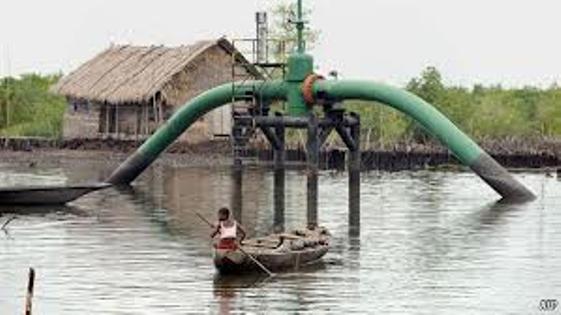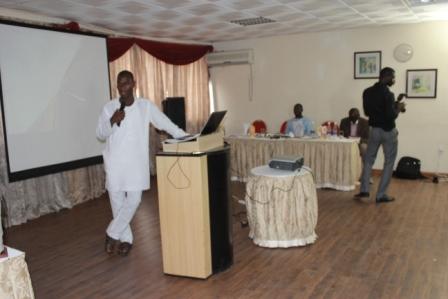AN OVERVIEW OF THE OIL & GAS INDUSTRY IN NIGERIA AND THE PETROLEUM INDUSTRY BILL (III)

By Suraj ‘Jarus’ Oyewale, ACA
Tax Accountant @ an Oil & Gas Company
Founder, JarusHub Career Portal
Being a paper presented at the 1st Public Discussion Forum organized by the Economic Insight, the press arm of the Economics Students Association of the Obafemi Awolowo University, Ile-Ife, Nigeria
Saturday, March 29, 2014
THEME: THE NIGERIAN PETROLEUM INDUSTRY BILL (PIB): FRAMEWORK FOR ECONOMIC EMANCIPATION OR POLITY DESTABILIZATION?
Continued from part 2
TAXATION UNDER PIB
The PIB effectively repeals the Petroleum Profits Tax Act (PPTA), which has been governing the fiscal framework in the upstream sector pre-PIB. Upstream oil and gas companies will now be subject to
- Companies Income Tax (CIT): Like the downstream businesses. It remains at 30% of adjusted profits
- Hydrocarbon Tax (HCT): This is a new tax to be introduced by the PIB for upstream operators. The rate is 50%
Roughly, the effective tax rate in the upstream industry comes to around 80%. It should be noted the repealed PPTA ranges from 66.75% to 85%. So it may be net benefit or hit to companies depending on their operations.
Education Tax remains unchanged at 2% of assessable income.
KEY ROLE OF THE MINISTER OF PETROLEUM
To:
- Exercise supervisory function over the petroleum industry
- Advise government on matters pertaining to the petroleum industry
- Represent Nigeria at international organizations on petroleum
- Negotiate and execute international petroleum treaty and agreements with other sovereign countries and international organizations on behalf of government
- Advise the President on the appointment of CEOs of UPI, DPRA, NOC, AMC and other agencies that will be formed pursuant to PIB.
- Upon the advice of the inspectorate, grant, amend, renew, extend, or revoke upstream and downstream petroleum licences and leases pursuant to the provision of the act.
PROCESS FOR AWARD OF LICENCE
- Open and transparent competitive bidding
- Parameters such as signature bonus, work commitment etc shall be used
- No discretionary award
*However, section 191 gives the President the power to grant discretionary award of licence
CONTENTIOUS AREAS OF PIB
- PIB VESTING OIL OWNERSHIP IN THE FEDERAL GOVERNMENT – Effectively meaning resource control arguments by the South, Niger-Delta, in particular, is not taken care of by the PIB. This means resource control debate will not die soon.
- DEREGULATION: There is an irony here; many Nigerians clamour for PIB, and at the same time are shouting down deregulation. But what they don’t know is that deregulation is part of the downstream sector is part of the objectives of deregulation.
- HOST COMMUNITY FUND: The PIB will require oil and gas producing companies to contribute an amount (10% of their profits after adjusting for Hydrocarbon Tax and Companies Income Tax) into this Fund. The funds will be used to develop the economy and infrastructure of these communities. A community that still goes ahead to destroy assets of companies producing in their locality will forfeit their share of PHCF. This looks like a good deal to me, but my issue is, are we not giving too much to the host communities? Already, we have the ministry of Niger Delta, which receives annual budget, and the Niger Delta Development Commission (NDDC), which receives what is called NDDC levy (which is 3% of annual budget of producing companies). which are all set up to cater for the oil producing regions. We are also aware that by the derivation principle, the oil producing states receive more allocations than non-oil producing ones. We are now throwing the Host Community Levy into the mix. Are we overpampering some people? I know this is a very sensitive issue, but I think we should begin to ask these questions.
- ROLE OF THE PETROLEUM MINISTER: Some analysts have opined that the Petroleum Minister has too much powers. That granting of licences and leases, especially for upstream projects, should rest with the President. We should however not forget that the Act says this will take place by competitive bidding and the Minister’s role is to coordinate this.
- PRESIDENT’S DISCRETIONARY POWER TO AWARD LICENCE: I think this clause should be removed. For me, discretionary power defeats the essence of the bill, which is to enhance full transparency.
- GAS FLARING: In truth, in this kind of industry, gas flaring is inevitable. Sometimes, it is a safer to flare, sometimes after processing gas, the customer may not take it up, and you are left with no other option that to flare since gas cannot be stored beyond certain time. So the Act gives the minister the power to grant permit of not more than 100 days to flare gas. Except you have the permit, you cannot flare gas. However, this being Nigeria, some people have opined that such permit may be abused.

OPPOSING FORCES IN PIB PASSAGE
- THE NIGER DELTA/OIL PRODUCING REGION – asking for a better deal
- THE NORTHERN LEGISLATORS – Saying we are giving too much to the oil producing region
- THE INTERNATIONAL OIL COMPANIES – disappointed by the over-pampering of the locals
- THE INDEPENDENT ACTIVISTS – who say the president and the minister have too much powers.
CONCLUSION
This is an academic environment and I believe you are all intellectuals. There are always different sides to debates. That is why I have decided to do a comprehensive analysis of the bill for you and leave you to conclude. But for me, the problem with Nigeria is not law, the problem is implementation. We have laws, but people still cut corners. The PIB, on paper, is good because it unifies all the laws on the industry and takes into consideration modern challenges. Obviously, the law sets out to seek a better deal for Nigeria from the petroleum industry, which is the main driver of our economy. But like any other thing Nigerian, it has been politicized. For me, beyond whether it is a tool for economic emancipation or polity destabilization, the greater problem is, if we optimize our taking from the oil industry (one of the objectives of the Bill), without good leadership, the revenue will not translate into development. I was in Qatar and UAE late last year, and I saw the massive development. They are oil producing countries like us, even if they are smaller countries. Our problem is leadership. No matter how rosy any law is, with the kind of leaders we have been having in this country, things may not change. Unfortunately, it does not appear this will change soon.
Thank you for listening.
*******
References
- The Petroleum Industry Bill Document, 2012 version
- Overview of oil and gas Industry in Nigeria, Eben Akinyemi, Stransact Partners Oil & Gas Tax School, Accra, Ghana, August 2012
UPDATE: There have been subsequent changes to PIB between when this speech was made in 2014 and today, but the article still gives insight into the Bill.
Established in March 2013, JarusHub is a Nigerian information hub with focus on career and management. It is rated Nigeria's most authoritative destination for online career resources. It parades an array of Nigerian professionals who share their career experiences with a view to bridging career information gap and mentoring a generation to success. Whether you're a student, a recent graduate or an established professional, or even an executive, you will always find something to learn on JarusHub. All enquiries to jarushub@gmail.com or 0808 540 4500. Facebook: www.facebook.com/jarushub; Twitter: @jarushub or @mcjarus.
Attend JarusHub’s 2024 Seplat Assessment Center Coaching
October 29, 2024
2 comments
Let us have your say by leaving a comment belowCancel reply
Recommended For You
-
Few Nigerians Work As Cabin-Crew On International Airlines?
November 10, 2013 -
Faces @ Jarushub Career Conference (iii)
September 23, 2013 -
5 Freelance Skills In Demand
November 26, 2016







[…] Continues in part 3 […]
This is so true, especially your conclusion. I kinda share the same mindset with you too. Keep up the good work Mr. Jarus